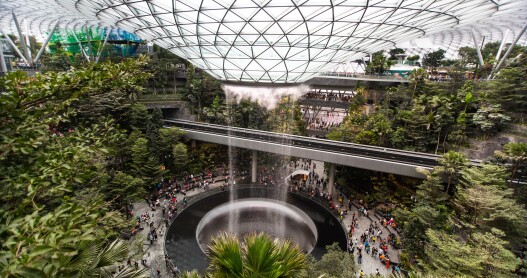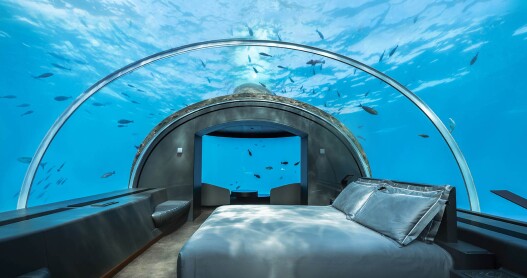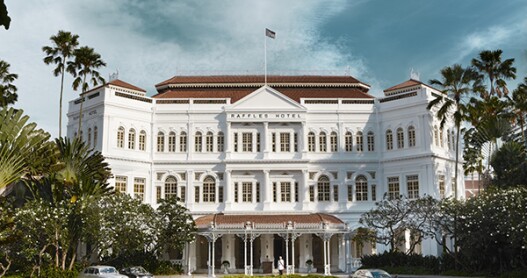Overview
When’s the best time to go to Dubai?
With year-round sunshine, Dubai’s weather is warm in winter (with a handful of cool days) and sultry in spring and fall. In the summer, temperatures are sizzling, and the humidity fogs your glasses the minute you leave your air-conditioned building or vehicle. While December through March is the most comfortable and lively period, it’s also high season, with plenty of festivals and sports events, and therefore very expensive. Prices are more reasonable in the shoulder periods of fall (October–November) and spring (April–May), but summer (June–September) is when you’ll really find the bargains.
How to get around Dubai
The colossal size of the airport terminals means that it can take forever to get from the plane through immigration to the taxi stand. If you want to make a cultural overture, greet immigration staff in Arabic with As’salam Alaykum (“Peace be upon you”), to which they’ll respond with Wa’alaykum salaam (“Peace right back to you”). For a hassle-free arrival, ensure that your passport is valid for six months. (If it does, you run the risk of being sent back on the next plane.) Avoid carrying codeine (you can buy many medications over the counter in Dubai) and banned materials such as R- and X-rated DVDs or magazines. When you leave the country, it is worth arriving at the airport well in advance of your departure so that you can enjoy the excellent airport shopping.
The winter months, with their slightly cooler temperatures, are a wonderful time to stroll the backstreets and wander the parks of Dubai. The rest of the year—and to traverse longer distances—the Metro can transport you between malls and along Sheikh Zayed Road. An air-conditioned public bus service travels along Jumeirah Beach Road. Check Dubai Government’s Road and Transport Authority for timetables and fares. The abras (open-sided wooden boats) that continually crisscross Dubai Creek are fun for moving between the older neighborhoods of Deira and Bur Dubai, especially if you’re exploring the souqs and the historic waterfront. Taxis are reasonably priced and useful when traveling from the airport to your hotel or when heading out to dinner. Rental cars are also affordable—and UAE roads are excellent—but are only necessary if you’re day-tripping or driving around the country. An international driver’s license is required.
Can’t miss things to do in Dubai
Stroll the backstreets of Satwa, a working-class neighborhood where locals and expats live in modest, sometimes ramshackle, houses with colorful iron gates and peeling paint. Crimson bougainvillea falls over the white walls, chickens scratch about the dusty lanes, and residents can often be seen cooking and eating in the courtyards, or playing cricket or soccer in the vacant sandy lots. On the main streets, you’ll find textile stores and tailor shops, simple eateries, and hole-in-the-wall bakeries where you can buy piping-hot flatbread straight out of wood-fired ovens for one dirham (about 25 cents).
Food and drink to try in Dubai
Eating out is one of the delights of visiting Dubai, and countless restaurants cater to all tastes, styles, and budgets. If you are staying at a five-star hotel, take advantage of its reservation service to book tables at the finest restaurants, however, don’t reserve a table before 8:30 p.m. or you’ll be eating only with other tourists. Arabs eat a late dinner (from 10 p.m. onward), and expats who’ve lived in the city for years do the same. You’ll need to reserve weeks in advance for weekend meals at Dubai’s best restaurants, such as Le Petite Maison and Zuma. Expect to dress up at the high-end places. Liquor is available at restaurants, hotel bars, and special clubs. If you want a drink on your balcony before going out, stock up at the airport duty-free, where allowances are generous.
Culture in Dubai
Dubai is often criticized as being a soulless city without culture, but anyone who tells you that has neither spent much time in the city, nor befriended any Emiratis or expats. The UAE’s culture was intangible until recent years when a contemporary art scene and numerous arts festivals began to evolve. There are no monumental pyramids and no majestic heritage buildings, but visitors will find a rich traditional culture based on things like oral storytelling, song, dance, and poetry.
Dubai has festivals for everything: shopping, food, film, and sports. Most are scheduled from November through March, culminating with the Dubai World Cup, the world’s richest horse race. The Muslim calendar is lunar, so religious festivals always begin with the sighting of the moon, and the night before a religious holiday, alcohol isn’t served. During Ramadan, the holy fasting month, business hours are limited, and it’s forbidden (haram) for anyone—Muslim or non-Muslim—to eat, drink, or smoke in public. Many clubs close for the month, as music is also haram, except for the traditional oud (Arabian lute). At the end of the month, after the breaking of the fast, the streets come alive, malls stay open until midnight, and families picnic in the parks until the wee hours. Other holidays to watch for include Islamic New Year, the birthday of the Prophet Muhammed, Eid Al Fitr (the festival marking the end of Ramadan), and Eid Al Adha (a four-day celebration at the end of the Hajj, or the main pilgrimage to Mecca). If you’re in Dubai for National Day, which takes place on December 2, head to the Dubai Heritage Village and Diving Village after dark to participate in the festivities.
Local travel tips for Dubai
- Do as the long-term expats do: dress modestly if you want to be accepted and value the opportunity to befriend locals. Women should wear skirts to the knees or longer, tops with sleeves, and nothing too tight or revealing. Men should wear long pants and tops with sleeves, no matter what the weather. Leave the swimsuits, shorts, and tanks at the hotel. You’ll see some foreigners wearing less, but this is highly offensive to Emiratis.
- Never shake hands with an Emirati woman unless she offers her hand first, and don’t photograph women without permission. Also don’t photograph sheikhs’ palaces, police stations, military buildings, ports, or airports—although this has more to do with security than culture or religion.
- Avoid public displays of affection, especially during Ramadan, as you run the risk of being fined.
- If you are visiting someone’s home, remove your shoes at the door, don’t show the soles of your feet when sitting down, and avoid eating with your left hand.
- Don’t use rude gestures or swear in public.
Practical Information
Electricity in Dubai is 220/240 V. Don’t forget your 3-pin plug adapter (a Type G). The official language of Dubai is Arabic but you’ll find that many people speak English (as well as other languages from around the world).
Local Resources
Guide Editor
Rend Beiruti is a long-term resident of Dubai. She is passionate about licorice, poetry, and four-day work weeks.














